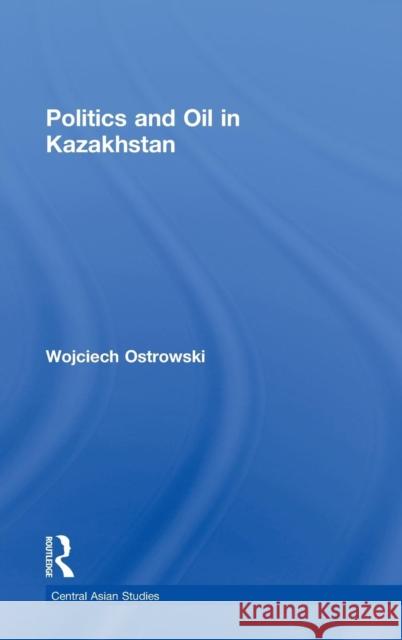Politics and Oil in Kazakhstan » książka
Politics and Oil in Kazakhstan
ISBN-13: 9780415485807 / Angielski / Twarda / 2009 / 212 str.
Politics and Oil in Kazakhstan
ISBN-13: 9780415485807 / Angielski / Twarda / 2009 / 212 str.
(netto: 699,68 VAT: 5%)
Najniższa cena z 30 dni: 705,23
ok. 22 dni roboczych.
Darmowa dostawa!
In Kazakhstan, the oil industry plays a crucial role in its economic and political life due to the country's considerable oil revenues and accompanying conflicting interests. As an arena of political struggle, this industry provides a good test case for uncovering regime maintenance techniques. This book examines the ways in which the post-Soviet Kazakh regime has managed to sustain itself in power, and the regime maintenance techniques it has used in the process of establishing and upholding its position. It scrutinizes the tools that the Kazakh regime employed in order to bring the country's oil industry under its control and, while doing so, shifts the emphasis from the prevalent zhuz-horde, tribe, and clan-based approaches to Kazakh politics towards corporatism and patron-client mechanisms of control. Based on extensive field work in Kazakhstan and in-depth interviews with high ranking representatives of companies working in Kazakhstan's oil and gas industry, both local and foreign, the National Oil Company and its subsidiaries, government agencies, foreign diplomats, journalists and representatives of oppositional parties and NGOs, this book provides a comprehensive study of the issues of politics of oil and state-business relationships in Kazakhstan.
This book deals with the oil industry in Kazakhstan with which the political and economical future of the country is inseparably intertwined. In particular, it explores the Kazakh regime under Nursultan Nazarbayev and the methods used to control the oil industry. Investigating the interplay between the regime and the actors located in and around two cores, the National Oil Company (NOC) and the oil-rich areas, the book focuses on instances where players involved with the oil industry, whether directly or indirectly, attempted to challenge the regime’s authority in those two centres. It reveals that moments of crisis uncover the regime’s maintenance techniques. The author shows that in order to establish and sustain its control over the oil industry, the Kazakh regime used formal, informal and quasi-formal tools, and entered into a tacit agreement with foreign oil companies. The transition from formal to informal techniques accelerated during the process of privatisation of the oil industry. Significantly, the introduction of the informal tools was accompanied by the gradual Kazakhization of the oil industry, which aimed at strengthening the regime’s ties with its clients.
Based on extensive field work in Kazakhstan and in-depth interviews with high ranking representatives of companies working in Kazakhstan’s oil and gas industry (local and foreign), NOC KazMunaiGas and its subsidiaries, government agencies, foreign diplomats, journalists and representatives of oppositional parties and NGOs, this book provides an informed study of Kazakhstan’s oil industry and its interplay with the interests of the government. It will be of interest to political scientists and to academics working on Central Asia and the politics of oil.











